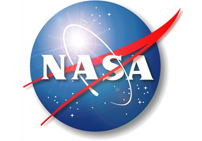Do NASA Employees Directly Generate New Business Activity?
 NASA GRC Award: Continuing Non-NASA New Business Support Services
NASA GRC Award: Continuing Non-NASA New Business Support Services
“Contract Award Amount: $400,000
Contractor: Jefferson Consulting Group, LLC 1401 K St NW STE 900 Washington, DC 20005-3455
Description: Continuing Non-NASA New Business Support Services”
“A previously competed MAS Federal Supply Schedule (FSS) award, NNCI 1DC82D, to Jefferson Solutions resulted in the development of a Center Strategic Plan for identifying and attracting non-NASA Business. The contract also led to the development of a three day training course for Business Development, External Partnering, and Communication and Engagement Skills for Business Development. At this time, the center desires to provide two additional sessions of the training course and to assess the implementation of the plan on a quarterly basis as well as, if necessary, to revise the plan andlor training based on said assessment. The Government estimates, but does not guarantee, that the volume of purchases through this agreement will be $400,000.”
 Keith’s note: I wonder if NASA GRC is able to quantify how much new business (in a dollar amount) has been (or is expected to be) generated by this $400,000+ contract and the activities it covers. The real question: does this government expenditure actually generate real business? What metrics are used to determine if this training is worth doing?
Keith’s note: I wonder if NASA GRC is able to quantify how much new business (in a dollar amount) has been (or is expected to be) generated by this $400,000+ contract and the activities it covers. The real question: does this government expenditure actually generate real business? What metrics are used to determine if this training is worth doing?









“The real question: does this government expenditure actually generate real business? What metrics are used to determine if this training is worth doing?“
I would say that the first metrics to be decided are the time frame (life cycle) of the project and the rate of the “results” achieved over that time period. Many projects are considered to be non-viable because any ROI is expected to take too long to materialize, or the ROI over time is too variable to support paying loan repayments or stock holders/investors.
In many cases, investment money can see a better and more regular return, with lower risk, just by buying bonds, or even sticking it in the bank at today’s tiny interest rates.
If they are willing to operate this project long enough to determine its actual returns (I’m thinking 15 years minimum), then it will be possible to actually assess what “results” this training, and any contracts/companies developed as a direct result of it, have generated. I think only after this amount if time (or an absolute minimum of 10 years) can it be decided: 1) if the training project was worthwhile; and 2) how it can be modified/improved.
Of course, almost no project associated with NASA/government lasts anywhere near this long, so I think some sort of protective legislation (with funding content) would be needed to even consider taking this any farther.
Overall, I think it’s a very good idea, if they can make it work, and it may well lead to other training projects of a similar nature. The best way to get what you want from people and/or what’s good for them, is to train them accordingly. A lot of “companies” invest money in training their employees; how many invest in training their “customers,” on whom they rely just as much?
It never ceases to amaze me that in a constrained budget environment where there are not enough FTEs to cover some NASA civil servants that we continue to spend money on contracts for things that NASA should be able to do in-house. We have contracted out so many activities that NASA employees have no skills to perform some of their inherently governmental work. We have contractors that do project management and systems engineering, both of which are inherently governmental in nature. Can’t we develop our own Strategic Plans and develop our own training sessions for business development and partnering? I bet there is a cadre of NASA employees whose position is directly involved with business development and partnering.
What you say makes good sense, but unfortunately it clashes with the government’s goal of NASA as a jobs program. Think of NASA as an employment agency instead of a space agency and you’ll make half of Congress very happy. It stinks, but it seems to be the way of things.
Unfortunately, that is exactly what we are, a jobs program. We should get rid of all of the civil servants and contract everything out. Congress seems to hate civil servants and prefers private sector employees anyway. All we need is some contract management folks that are NASA and the rest can be contractors. Maybe we don’t even need NASA contract managers, Congress could just appropriate money to Lockheed and Boeing.